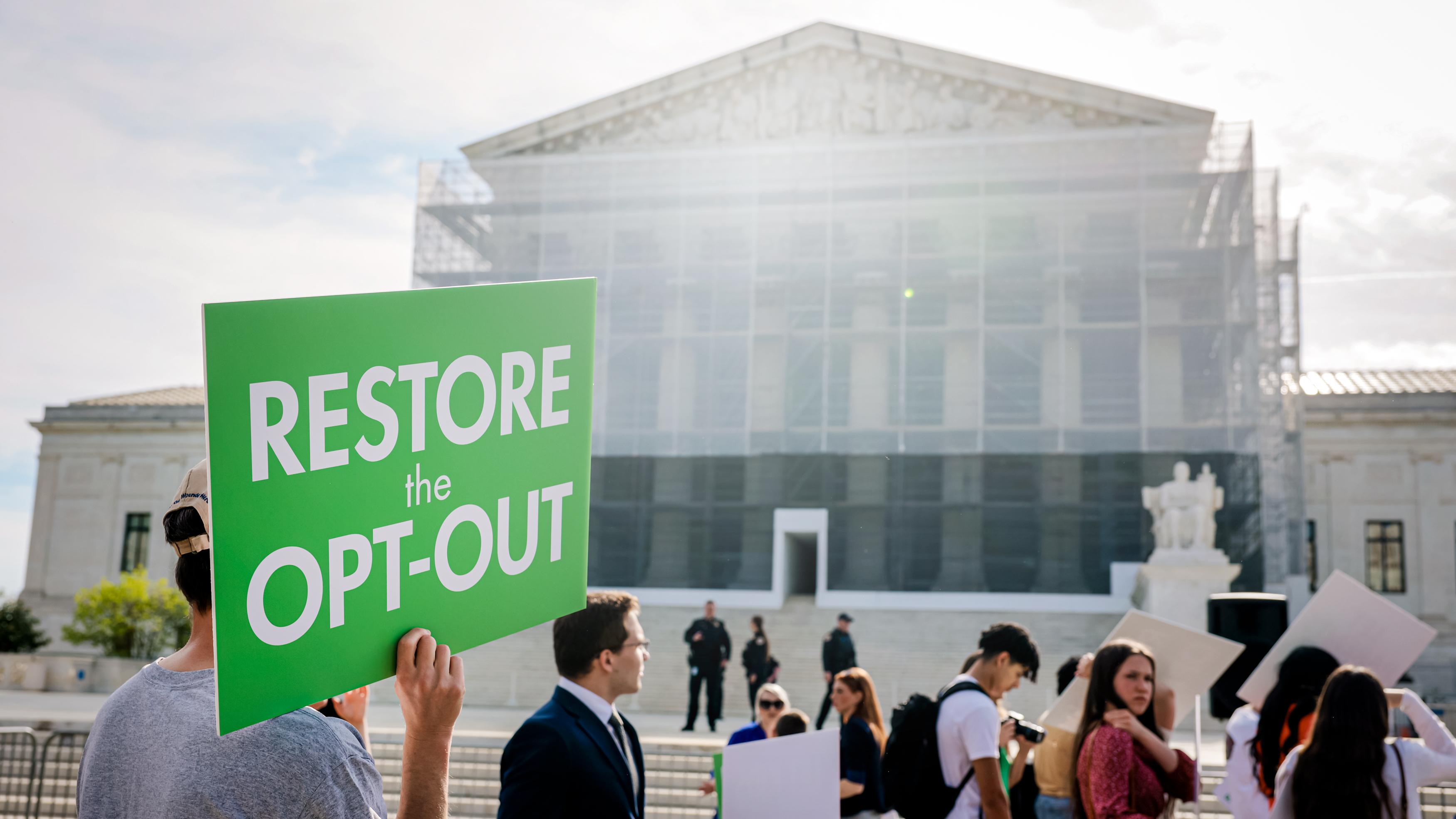In 2022, schools in Montgomery County, Maryland, introduced a series of books with LGBT themes into their English and language arts curriculum for students in kindergarten through fifth grade.
Initially, the school board agreed to notify parents when the books would be used, and allowed the children to sit out the lessons if the parents objected.
But within a year, the schools withdrew the opt-out and notifications. They said the growing number of students skipping the reading sessions disrupted the classroom, while notifying parents placed a strain on school resources.
The Montgomery County Board of Education was also concerned that students whose parents allowed them to attend these reading sessions would face stigma from classmates who opted out.
Parents mounted a petition campaign, but the board was unrelenting.
Several Catholic, Muslim, and Eastern Orthodox families sued. They said that forcing students to attend LGBT-themed story hours violated their religious beliefs.
After the families lost in district court and the Fourth Circuit Court of Appeals, the Supreme Court ruled in their favor on June 27. It overturned the lower courts’ decision and affirmed parents’ opt-out rights while the case heads back to the Fourth Circuit for further review.
Court: Board Interfered With Parental Rights
The ruling was 6–3. Justices Sonia Sotomayor, Elena Kagan, and Ketanji Brown Jackson dissented.Justice Samuel Alito, writing for the majority, said forcing children to attend the reading sessions “substantially interferes with the religious development” of the plaintiffs’ children and imposes an unacceptable burden on them.
“We reject this chilling vision of the power of the state to strip away the critical right of parents to guide the religious development of their children,” Alito wrote.
The majority also rejected the board’s claim that the opt-outs were too much of a burden on the schools, calling it a “self-inflicted” problem. Alito noted that the school system allows students to opt out of numerous other classes and activities.

The dissenting justices, in an opinion by Sotomayor, said the majority’s ruling gives parents too much power over educators via the free exercise clause of the First Amendment.
“Today’s ruling threatens the very essence of public education,” she wrote.
The Books Were Not Neutral
The board introduced the texts to address a purported lack of “inclusive” materials, according to the ruling, and told parents that the texts were not part of “planned explicit instruction on gender identity and sexual orientation in elementary school.”
However, teachers were required to use them as part of the curriculum, and the texts were chosen according to certain criteria, according to an email by one school principal.
The following are three questions included in the criteria: “Is heteronormativity reinforced or disrupted?” “Is cisnormativity reinforced or disrupted?” “Are power hierarchies that uphold the dominant culture reinforced or disrupted?”
Teachers were encouraged to discuss the books with children, and were given a list of suggested responses and talking points.
For example, if a student suggested that two men cannot get married, a suggested response reads: “When people are adults they can get married. Two men who love each other can decide they want to get married.”
Alito called the books “unmistakably normative.”
“They are designed to present certain values and beliefs as things to be celebrated, and certain contrary values and beliefs as things to be rejected,” he wrote.
Justice Clarence Thomas, in a separate concurring opinion, wrote that such ideas are relatively new and betray “an attempt to impose ideological conformity with specific views on sexuality and gender.”

Dissenting Justices Say Ruling Will Bring ‘Chaos’ to Public Schools
Sotomayor, writing for the dissent, said the ruling “promises to wreak havoc on our Nation’s public schools and the courts tasked with resolving this new font of litigation.”“Requiring schools to provide advance notice and the chance to opt out of every lesson plan or story time that might implicate a parent’s religious beliefs will impose impossible administrative burdens on schools,” she wrote.
The dissent also said the ruling may have a chilling effect on the public school system’s attempts to police bullying.
“If a student calls a classmate a ‘sinner’ for not wearing a headcovering or coming out as gay, how can a teacher respond without ‘undermining’ that child’s religious beliefs?” Sotomayor wrote.
Win for Constitutional Rights or Pandora’s Box?
Parental watchdog group Moms for Liberty celebrated the decision on social media platform X.
President Donald Trump said during a White House press conference, “I think it’s a great ruling for parents.”
“They lost control of their schools,” he said.
“I’m not surprised by it, but I am surprised it went this far.”
Deputy Attorney General Todd Blanche added that the ruling “seems like a basic idea, but it took the Supreme Court to set the record straight.”
Rep. Jamie Raskin (D-Md.) echoed Sotomayor’s concerns and suggested the ruling could lead to unintended consequences.
“Whatever you think of opt-out policies at the local level, today’s decision is of the most dubious constitutional reasoning and opens a gigantic Pandora’s box,” he said in a statement following the decision.
“Can students opt out of science classes where the theory of evolution is taught if it conflicts with their family religious beliefs in creation-science?”












